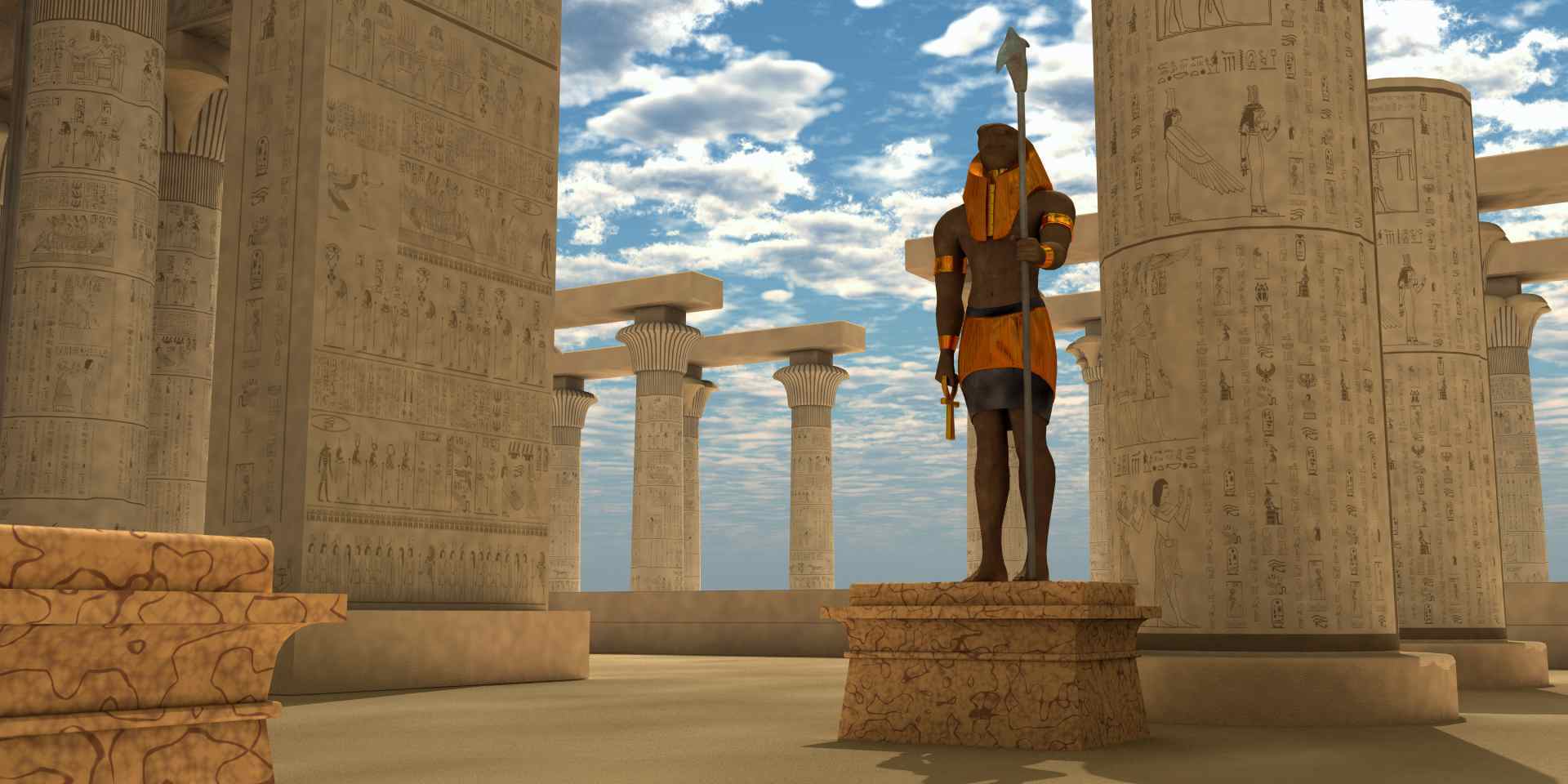
Ever wondered about the fascinating world of ancient Egyptian mythology? One of the most intriguing figures is Horus, the falcon-headed god. Known as the sky god, Horus played a crucial role in Egyptian culture and religion. His story is filled with epic battles, divine lineage, and powerful symbolism. From his iconic Eye of Horus to his fierce rivalry with Set, Horus's tales are both captivating and complex. Whether you're a mythology buff or just curious, these 28 amazing facts about Horus will give you a deeper understanding of this legendary deity. Ready to dive into the mysteries of Horus? Let's get started!
Who is Horus?
Horus, one of the most significant deities in ancient Egyptian mythology, symbolizes power, protection, and kingship. Known for his falcon head, Horus has a rich history filled with fascinating stories and attributes.
-
Horus is often depicted as a falcon. His image usually shows a falcon or a man with a falcon head, symbolizing his sky god status.
-
He is the son of Osiris and Isis. Horus's parents are two of the most important gods in Egyptian mythology, making him a key figure in many myths.
-
Horus's eyes represent the sun and the moon. The right eye symbolizes the sun, while the left eye represents the moon, embodying the balance of light and darkness.
The Myth of Horus and Set
The conflict between Horus and Set is one of the most famous stories in Egyptian mythology. This myth explains the struggle between good and evil.
-
Horus battled Set to avenge his father's death. Osiris, Horus's father, was killed by Set, leading Horus to seek revenge.
-
The battle lasted for 80 years. This prolonged conflict symbolizes the ongoing struggle between order and chaos.
-
Horus lost his left eye in the fight. Set gouged out Horus's left eye, which Thoth later restored, symbolizing healing and restoration.
Horus's Role in Egyptian Kingship
Horus played a crucial role in the concept of kingship in ancient Egypt. Pharaohs were considered the earthly embodiment of Horus.
-
Pharaohs were seen as the living Horus. Each pharaoh was believed to be the human form of Horus, ensuring the god's presence on earth.
-
Horus's name means "The One Far Above". This name reflects his status as a sky god and his association with the divine right of kings.
-
The Eye of Horus is a symbol of protection. This powerful symbol was used for protection, health, and restoration.
Horus in Art and Culture
Horus's influence extends beyond mythology into art, culture, and even modern times.
-
Horus is often shown with a double crown. This crown represents the unification of Upper and Lower Egypt.
-
The Eye of Horus appears in jewelry and amulets. Ancient Egyptians wore these items for protection and good health.
-
Horus is featured in many ancient Egyptian temples. Temples dedicated to Horus can be found throughout Egypt, showcasing his importance.
Horus's Family and Relationships
Horus's family ties and relationships with other gods are central to many myths and stories.
-
Horus had four sons. These sons were associated with the four cardinal points and were protectors of the deceased's organs.
-
Horus's wife was Hathor. Hathor, the goddess of love and motherhood, was often depicted alongside Horus.
-
Horus's mother, Isis, was a powerful goddess. Isis's magic and determination played a crucial role in Horus's life and battles.
Horus in Modern Times
Horus's legacy continues to influence modern culture, from literature to popular media.
-
Horus appears in modern literature and films. His stories and symbols are often used in books, movies, and TV shows.
-
The Eye of Horus is a popular tattoo design. Many people choose this symbol for its protective qualities and historical significance.
-
Horus's mythology influences modern spiritual practices. Some modern spiritual movements incorporate Horus's symbols and stories into their beliefs.
Fun Facts About Horus
Here are some lesser-known but intriguing facts about Horus that highlight his unique characteristics.
-
Horus is associated with the planet Mars. In astrology, Horus is linked to Mars, symbolizing war and conflict.
-
Horus's sacred animal is the falcon. Falcons were revered in ancient Egypt and often associated with Horus.
-
Horus's name is sometimes spelled "Heru". This variation reflects different dialects and translations of ancient Egyptian language.
Horus's Influence on Other Cultures
Horus's impact extends beyond Egypt, influencing other cultures and religions.
-
Horus influenced Greek and Roman mythology. Elements of Horus's stories can be seen in the myths of gods like Apollo and Jupiter.
-
Horus's symbols are found in Freemasonry. The Eye of Horus is used in Masonic rituals and symbolism.
-
Horus's mythology parallels Christian stories. Some scholars note similarities between Horus's life and the story of Jesus Christ.
Horus's Temples and Worship
Temples dedicated to Horus were centers of worship and played a significant role in ancient Egyptian religion.
-
The Temple of Edfu is dedicated to Horus. This well-preserved temple is one of the most important religious sites in Egypt.
-
Horus was worshipped in many forms. Different regions of Egypt had their own versions of Horus, each with unique attributes.
-
Horus's festivals were grand celebrations. These festivals included processions, offerings, and rituals to honor the god.
Horus's Symbols and Their Meanings
Horus's symbols carry deep meanings and were used extensively in ancient Egyptian culture.
- The Winged Sun Disk represents Horus. This symbol, often seen in temples and tombs, signifies protection and royal power.
Horus: A Timeless Symbol
Horus stands as a powerful symbol in Egyptian mythology. Known for his falcon head, he represents protection, kingship, and the sky. His story, filled with battles against Set, highlights themes of justice and order. Horus' eye, often depicted as the "Eye of Horus," symbolizes healing and protection, still used in modern culture as a sign of good health.
His influence extends beyond ancient Egypt. Many cultures have adopted his symbols and stories, showing his lasting impact. From ancient artifacts to modern jewelry, Horus continues to captivate people worldwide.
Understanding Horus gives us insight into ancient Egyptian beliefs and values. His legacy reminds us of the rich history and mythology that shaped one of the world's oldest civilizations. So next time you see the Eye of Horus, remember the fascinating story behind this timeless symbol.
Was this page helpful?
Our commitment to delivering trustworthy and engaging content is at the heart of what we do. Each fact on our site is contributed by real users like you, bringing a wealth of diverse insights and information. To ensure the highest standards of accuracy and reliability, our dedicated editors meticulously review each submission. This process guarantees that the facts we share are not only fascinating but also credible. Trust in our commitment to quality and authenticity as you explore and learn with us.


